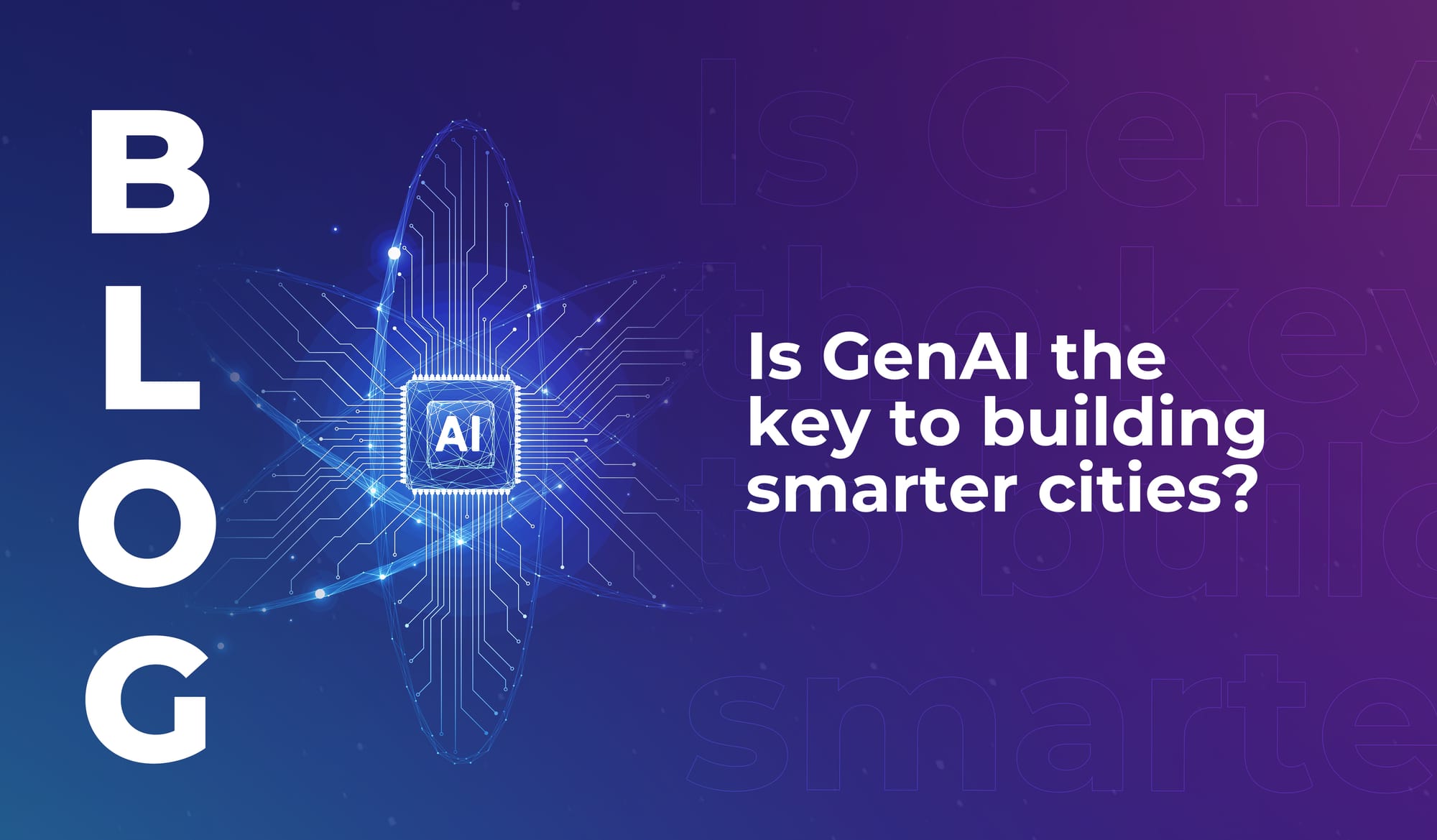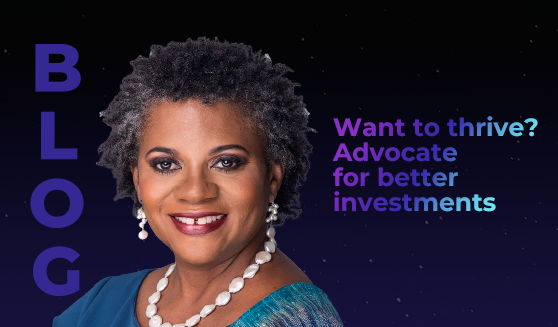
Is GenAI the key to building smarter cities?
Learn how generative AI is unlocking the true potential of digital twins – to make smart cities more efficient, inclusive, and citizen-focused.


#LEAP23 speaker Dr. Gillian Marcelle (Founder and CEO at Resilience Capital Ventures LLC) is a thought leader as well as an investor. She’s dedicated to facilitating change in the finance and investment world, so that, in her words, investments can “promote human thriving and planetary stewardship.”
Specialising in blended finance, RCV provides strategic advisory services for clients including sovereigns (The Bahamas), investment companies, venture capital funds, and policy research institutes.
Marcelle gave us the lowdown on RCV’s approach to developing blended financial architecture – and we asked how she realised that investments need to do more than just make money.
“The connected line that runs through our work is the Triple B Framework – a conceptual approach to solving challenges for mobilising and deploying all forms of capital by removing bottlenecks, illuminating blind spots and deploying blended finance architectures that combine financial and non-financial forms of capital.
“Our milestones are those of our clients, who regard us as trusted guides in their journey towards sustainable value creation. The publication of the second ESG report by MPC Energy Solutions, and the launch of the PolicyLink led Investor Blueprint, are two that come readily to mind for Q1 2023.
“Last year was a big knowledge production year for RCV. I was acknowledged as a LinkedIn Top Voice in the Green Economy and ranked among the most read contributors in Climate Finance on the Illuminem platform, where I published a critique of the global financial system and a transformative action-oriented agenda for change. My advocacy is attracting a large and growing audience, I am pleased to have reached a milestone of more than 25,000 followers on LinkedIn and my work on that platform has over 1.5 million views.”
“That is a really good question. I’ll answer it in this way: my work is focused on guiding investment decisions and doing so in a way that improves capital allocation for societal benefit.
“As a trained economist and innovation scholar, I’ve always been fascinated by market failures and understood that the myths regarding market equilibrium would not fully satisfy the needs of small, open island nations such as the Caribbean, or large countries with growing populations whose histories of exploitation left them out of the virtual circle of globalisation.
“My interest in technological change, and its possibilities for development, was forged at the University of the West Indies, St Augustine, Trinidad, under the tutelage of some of the most brilliant thinkers of my region. However, that theoretical understanding was greatly enhanced by working in mergers and acquisitions for what was then the largest telecoms company in the world – British Telecom. My analysis, even as the most junior member of the corporate HQ team, was being used to inform investment decisions.
“Having completed an MBA at the precocious age of 23 meant that I was fully able to grasp the opportunity, and I eagerly absorbed everything that I was exposed to about the investment process as practised from the engine room. When BT wanted to acquire systems integration companies across Europe, we undertook a process of collecting, analysing, and prioritising codified information to make an investment case.
“But this technical process was always accompanied by evaluation of the management teams of the target companies, not only in boardroom settings but at dinners and over drinks. The personalities and opinions of the executives in the targets mattered and their potential fit with culture and values was as much a part of the decision as any of the metrics that my model would produce. It was a small team and so I lived every step of this process.
“Why this matters, is that it allowed me to really absorb the central role played by non-financial factors. The way the executive teams of the companies to be acquired, and the assessment of the local BT country managers, were hugely important factors in those investment decisions. It was in fact the cultural and social capital of local country managers that often swayed the decision in one direction or another.
“Fast forward to today, when the financial and investment world is as highly concentrated in NYC, London, Paris and Zurich, my job entails helping clients to understand the implications of social, cultural and knowledge capital in the investment decision making process. And conversely, I work really hard on illuminating the blind spots of the decision makers sitting in financial capitals. Because I have been on both sides of that process, we believe that we add value and assist with widening the solution space in investing.
“Viewed from this perspective, I have known for three decades that investing is always about more than making money.”
“It would be to have as much venture advising as there is financial capital being deployed.
“Startups around the world, particularly those that are led by women and people of colour, do not even get past certain barriers because of layers of bias. If VCs had access to more knowledge and cultural capital (both GPs and LPs) there would be a set of wider search routines, more openness during the portfolio construction stage and then a lot more guiding of the ventures post investment. This applies to many asset classes and not simply Venture Capital.”
“The Kingdom of Saudi Arabia is at an exciting point of transformation and uniquely placed to solve development challenges in a manner not attempted before. Using the proceeds from a legacy oil and gas propelled economy, there is a focused effort on regenerative agriculture, food security, clean and renewable energy, the wellness economy including leisure and tourism.
“This is well aligned with the Triple B Framework’s approach to contextually specific investment strategies. The LEAP 2023 conference allowed me the opportunity to introduce my work to an entirely new community and provided an incredibly valuable learning experience and platform for dialogue.”
Thanks to Dr. Gillian Marcelle at Resilience Capital Ventures LLC . Join us in Riyadh for LEAP 2024.

Learn how generative AI is unlocking the true potential of digital twins – to make smart cities more efficient, inclusive, and citizen-focused.

The smart cities of the future will use tech to lower emissions, cut urban temperatures, and improve quality of life in highly populated areas.

Discover the cities that rank highly for smart city preparedness, and learn why locally relevant innovation is more important than cutting-edge tech.

Learn how generative AI is unlocking the true potential of digital twins – to make smart cities more efficient, inclusive, and citizen-focused.

The smart cities of the future will use tech to lower emissions, cut urban temperatures, and improve quality of life in highly populated areas.

Discover the cities that rank highly for smart city preparedness, and learn why locally relevant innovation is more important than cutting-edge tech.